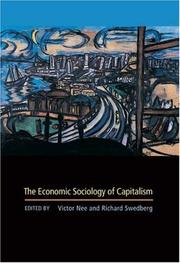| Listing 1 - 2 of 2 |
Sort by
|
Book
ISBN: 1501764624 1501748416 Year: 2020 Publisher: Ithaca, NY : Cornell University Press,
Abstract | Keywords | Export | Availability | Bookmark
 Loading...
Loading...Choose an application
- Reference Manager
- EndNote
- RefWorks (Direct export to RefWorks)
Creating the Suburban School Advantage explains how American suburban school districts gained a competitive edge over their urban counterparts. John L. Rury provides a national overview of the process, focusing on the period between 1950 and 1980, and presents a detailed study of metropolitan Kansas City, a region representative of trends elsewhere.While big city districts once were widely seen as superior and attracted families seeking the best educational opportunities for their children, suburban school systems grew rapidly in the post-World War II era as middle class and more affluent families moved to those communities. As Rury relates, at the same time, economically dislocated African Americans migrated from the South to center-city neighborhoods, testing the capacity of urban institutions. As demographic trends drove this urban-suburban divide, a suburban ethos of localism contributed to the socio-economic exclusion that became a hallmark of outlying school systems. School districts located wholly or partly within the municipal boundaries of Kansas City, Missouri offer revealing cases for understanding these national patterns.As Rury demonstrates, struggles to achieve greater educational equity and desegregation contributed to so-called white flight and what Senator Daniel Patrick Moynihan termed a crisis of urban education in 1965. Despite often valiant efforts to serve inner city children and bolster urban school districts, the result of this exodus, Rury cogently argues, was the creation of a new metropolitan educational hierarchy—a mirror image of the urban-centric model that prevailed before World War II. The stubborn perception that suburban schools are superior, reflective of test scores and budgets, has persisted into the 21st century and instantiates today's metropolitan landscape of social, economic, and educational inequality.

ISBN: 0691119570 0691119589 Year: 2005 Publisher: Princeton Princeton university press
Abstract | Keywords | Export | Availability | Bookmark
 Loading...
Loading...Choose an application
- Reference Manager
- EndNote
- RefWorks (Direct export to RefWorks)
This book represents a major step forward in the use of economic sociology to illuminate the nature and workings of capitalism amid the far-reaching changes of the contemporary era of global capitalism. For the past twenty years economic sociologists have focused on mesa-level phenomena of networks, but they have done relatively little to analyze capitalism as an overall system or to show how such phenomena emerge from and shape the dynamics of capitalism. The Economic Sociology of Capitalism seeks to change this, by presenting both big-picture analyses of capitalism and more focused pieces on institutions crucial to capitalism. The book, which includes sixteen chapters by leading scholars in economic sociology, is organized around three broad themes. The first section addresses core issues and problems in the new study of capitalism; the second considers a variety of topics concerning America, the leading capitalist economy of the world; and the third focuses attention on the question of convergence stemming from the global transformation of capitalism and the challenge of explaining institutional change. The contributions, which follow a foreword by economic historian Avner Greif and the editor's introduction, are by Mitchel Abolafia, James Baron and Michael Hannan, Mary C. Brinton, John Campbell, Gerald Davis and Christopher Marquis, Paul DiMaggio and Joseph Cohen, Peter Evans, Neil Fligstein, John Freeman, Francis Fukuyama, Ko Kuwabara, Victor Nee, Douglass C. North, AnnaLee Saxenian, Richard Swedberg, and Viviana Zelizer.
Economic sociology --- Capitalism --- Economics --- Social aspects. --- Sociological aspects. --- Capitalisme --- Economie politique --- Aspect social --- Aspect sociologique --- Socio-economics --- Socioeconomics --- Sociology of economics --- Sociology --- Social aspects --- Sociological aspects --- American Depository Receipts (ADRs). --- Blinder, Alan. --- Blomstrom, Magnus. --- Coleman, James S. --- Company Law. --- Davis, Gerald F. --- Douglas, Mary. --- East Asian miracle. --- Etzioni, Amitai. --- Foreign Corrupt Practices Act. --- Fung, Archon. --- Geertz, Clifford. --- Greenspan, Alan. --- Hannemyr, Gisle. --- Hewlett Packard. --- Intel. --- Ithaca HOURS. --- Jiang, Mianheng. --- King, Robert G. --- Lawler, Edward J. --- Lombra, Raymond. --- Maisel, Sherman. --- Newcomb, Horace. --- Schumacher Society. --- anticipatory socialization. --- capability approach. --- endogenous motivation. --- negotiating. --- opportunity hoarding. --- oppositional norms. --- pegged currencies. --- Ekonomisk sociologi. --- Nationalekonomi --- Kapitalism --- Globalisering. --- Nationalekonomi. --- Kapitalism. --- Economics. --- Capitalism. --- Market economy --- Profit --- Capital --- Economic theory --- Political economy --- Social sciences --- Economic man --- sociologiska aspekter. --- sociala aspekter.
| Listing 1 - 2 of 2 |
Sort by
|

 Search
Search Feedback
Feedback About UniCat
About UniCat  Help
Help News
News